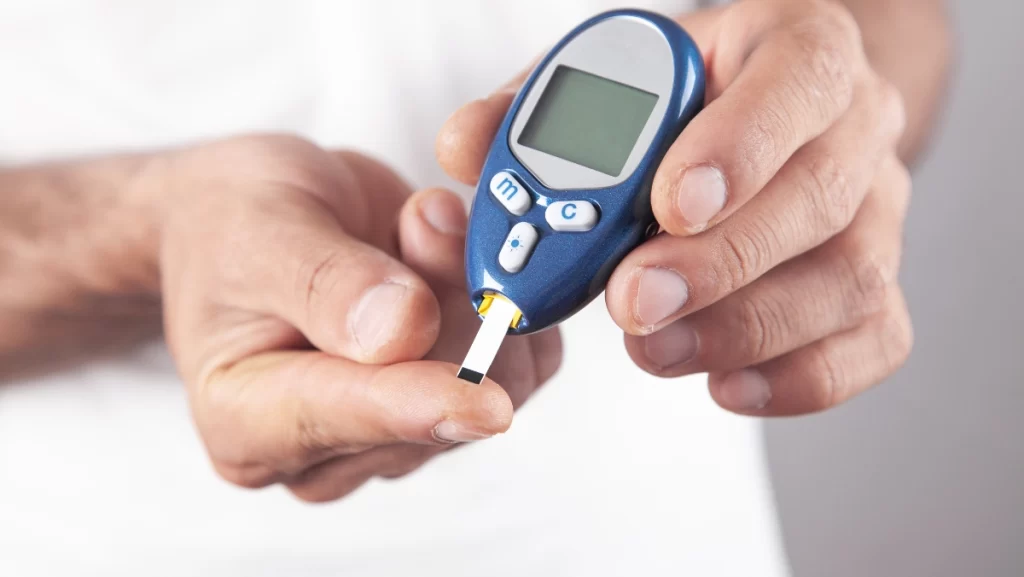Diabetes is a chronic condition that affects how your body processes blood sugar (glucose). There are several types of diabetes, each with distinct characteristics:
- Type 1 Diabetes: This autoimmune condition occurs when the immune system attacks insulin-producing cells in the pancreas.
- Type 2 Diabetes: The most common form, it occurs when the body becomes resistant to insulin or doesn’t produce enough insulin.
- Gestational Diabetes: This type develops during pregnancy and typically resolves after childbirth, though it can increase the risk of developing Type 2 diabetes later.
- Prediabetes: A condition where blood sugar levels are higher than normal but not high enough to be classified as diabetes.
Understanding these types is essential to ensure proper diagnosis and care. At the best sugar hospital in Chennai, comprehensive evaluations help identify the type of diabetes and create personalized treatment plans.
Effective diabetes treatment focuses on managing blood sugar levels to prevent complications. Common treatments include:
- Medications: Insulin therapy, oral medications, or injections to control blood sugar levels.
- Lifestyle Changes: Regular exercise and a balanced diet tailored to the individual’s needs.
- Monitoring: Continuous glucose monitoring (CGM) or regular blood sugar testing ensures effective control.
- Advanced Care: Cutting-edge technologies like insulin pumps and CGM devices are available at sugar specialist hospitals in Chennai.
The best sugar hospital in Chennai offers multidisciplinary care, combining endocrinologists, dietitians, and diabetes educators to ensure holistic management. Their personalized approach helps patients lead healthier lives.
Recognizing the early signs and symptoms of high blood sugar is crucial for timely intervention and management. Below are some common indicators:
- Frequent urination (polyuria): Excess glucose in the bloodstream can lead to increased urination, especially at night.
- Increased thirst (polydipsia): As the body loses more fluids through frequent urination, individuals often experience intense thirst.
- Fatigue: High blood sugar levels can make it difficult for the body to use glucose effectively, leading to constant tiredness.
- Blurred vision: High glucose levels can cause swelling in the lenses of the eyes, leading to blurred vision.
- Slow-healing wounds: Elevated sugar levels can impair the body’s ability to heal, making minor cuts or bruises take longer to recover.
- Unexplained weight loss: Despite eating normally, some individuals may lose weight due to the body’s inability to properly use glucose for energy.
If you notice any of these symptoms, it’s essential to seek care at the best sugar hospital in Chennai. Early diagnosis and treatment at a sugar specialist hospital in Chennai can prevent complications and improve quality of life.
Benefits and Risks of Diabetes Treatment
Benefits
Managing diabetes comes with numerous health benefits that can improve your overall quality of life. Some of the key advantages include:
- Better Blood Sugar Control: Proper treatment helps keep blood sugar levels within a healthy range, reducing the risk of complications.
- Improved Energy Levels: With controlled blood sugar, you’ll experience fewer energy crashes and more stable energy throughout the day.
- Enhanced Quality of Life: By staying on top of your treatment, you can maintain a healthy lifestyle and participate in regular activities without feeling restricted.
Risks
While treatment is essential, there are some risks associated with diabetes management:
- Side Effects of Medication: Some diabetes medications can cause side effects like gastrointestinal issues, weight gain, or allergic reactions.
- Overcompensation: At times, an over-correction in treatment can cause blood sugar levels to swing from high to dangerously low or vice versa.
- Complications from Untreated Diabetes: If treatment is delayed or not properly followed, diabetes can lead to severe long-term complications, including heart disease, Diabetes in kidney disease, and nerve damage.
In diabetes care in Chennai, professionals are trained to monitor and adjust treatment plans, ensuring the benefits far outweigh any potential risks.
Recovery: Managing Your Health
Recovery from high blood sugar or related conditions requires careful management and adherence to a personalized treatment plan. Here are some key aspects of recovery:
- Medication adherence: Taking insulin or oral medications as prescribed is critical to controlling blood sugar levels during recovery.
- Regular monitoring: Checking your blood sugar levels daily or as advised by your healthcare provider ensures that they remain within a safe range.
- Healthy diet: Following a balanced diet, rich in fiber and low in refined sugars, plays a vital role in stabilizing blood sugar levels. Hospitals like the best sugar hospital in Chennai provide tailored nutrition plans.
- Exercise: Incorporating regular physical activity, such as walking or swimming, can help improve insulin sensitivity and aid in recovery.
- Stress management: Reducing stress through relaxation techniques or yoga can positively impact blood sugar levels during recovery.
- Follow-up care: Routine check-ups at a sugar specialist hospital in Chennai are essential to monitor progress and make any necessary adjustments to your treatment plan.
With proper care and support from the best sugar hospital in Chennai, individuals can experience a smooth recovery and maintain long-term health.


